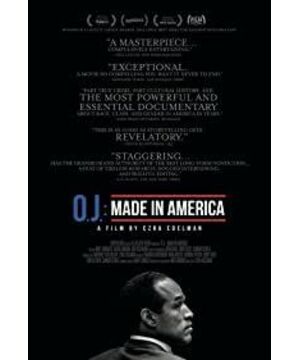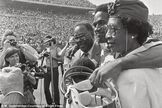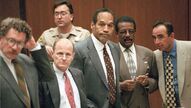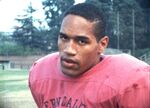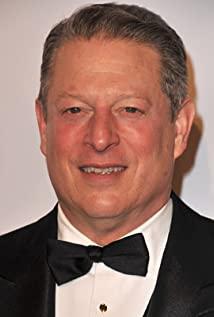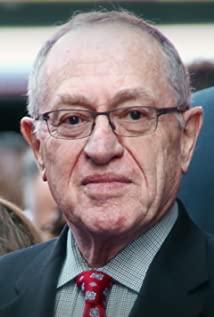All texts are only for personal quick review of the film, without any in-depth analysis, for recording purposes. Please click to close the page, don't waste your time.
Episode 1: Mainly describes how Simpson grew from a poor black boy to a nationally recognized football player with a strong body, tough willpower, a strong sense of purpose, amazing football talent and excellent personal PR skills and social skills. Among them, what has been repeatedly emphasized is his social ability. This is also the power he relies on to take over the resources of the public, the media, and celebrities when he uses his athletic ability to win attention in the rugby world. He manages these relationships very well. The nation loves him, and he is so likable in the public eye.
The era that accompanied his fame was also the era of the black movement. Los Angeles is flooded with a large number of black residents, but these African-American residents have not been treated fairly in the country that claims to be the freest in the world. The way the police in Los Angeles treat them is always hit, hit, hit!
During such a special period, many black opinion leaders have stood up, including Martin Luther King, the leader of the black civil rights movement in the United States, boxing champion Ali and so on. But Simpson never stood up. He didn't want to be labeled a person of color. He just wanted to be himself, just OJ Simpson.
For Simpson personally, there are two more things at this stage. The first is that he has begun to plan career plans other than professional football players. He has gone to become a movie actor and host. The documentary perspective explains this is that Simpson couldn't live in the days of football players. Living like a superstar, he quickly opted out of the National Football League. The second is that although Simpson has a wife and three children, he still knows a blond beauty, and the public knows that the blond beauty is his lover. This Nicole is the protagonist of Simpson's wife murder.
Episode 2: There are two famous events in the documentary: 1. The black driver Rondey King was violently beaten by a white police officer. This incident was hyped up by the media. All black people felt that the LAPD must no longer cover up their discrimination against black citizens. As well as violent law enforcement and other crimes, but in the end, the white police officer involved was found not guilty. 2. Lastasha Harlins, a black woman, was shot and killed by a Korean cashier in a supermarket due to an argument. The Korean cashier was finally sentenced to provide 400 hours of community service a day. After these two events, the African-American citizens of Los Angeles finally couldn't take it anymore, they were furious, they rioted, and so there was the famous 1992 Los Angeles riot.
As the black civil rights movement reached its climax, Simpson also married his second wife, Nicole, in 1985, with whom they had two children. The documentary mainly presents Simpson, a domestic violence freak, control freak, and two-faced person, to us through Nicole's friends and the 911 call. Here, some of the interviewees indicated some of Simpson's inappropriate behavior patterns, most notably his selfishness and liar nature, but these were not known to the public at the time. Even so, Simpson's commercial development was booming at the same time, he participated in many movies and made many celebrities. He has been developing towards his goal - to be the one and only OJ Simpson, the great Simpson, the Simpson that will be imitated by the next generation and will always be remembered.
Episode 3: Nicole was killed, and a male model was also killed at the crime scene. The scene was bloody, and Nicole's neck was almost broken. The police intervened in the investigation, and all the information pointed the suspect to Simpson. Simpson drove away, and after the police found his car on the highway, the police chose to follow his car instead of forcibly stopping it, a scene described by the interviewee of the documentary very well: "People who don't know think they are escorting them. President.", Simpson eventually stopped the car and was arrested.
At this time, the whole case entered the trial stage, and Simpson organized a strong team of lawyers. Simpson's lawyer led the story to the case that F exclamation mark wanted to frame Simpson and planned this case, why is Detective F? Because police officer F is a complete racist. After the black people experienced the riots in Los Angeles in 1992, their sensitive hearts seemed to be ready to erupt all the time. 90% of black people paid for the story of Simpson's lawyers. They believed that Simpson did not kill his wife and was innocent. The luck of the prosecution team is obviously not so good. One of the female lawyers does not welcome black women, and one of the male black lawyers publicly accused the Simpson team of trying to bring racial discrimination into the case. It's irrational, because the other party wants to fill the minds of black citizens with anger so that they don't have the energy left to analyze the case. The black lawyer was finally nailed to the white slave's board by the Simpson lawyers.
When I was watching the third episode yesterday, I even fell asleep because I had watched it for 3 hours straight. When I felt a little unbearable, I chose to go to Zhihu to check the context of the case, and I realized that, This case is not as simple as I imagined. It was my own ignorance that led me to think that this documentary was not so interesting. Second, the trial and the performance of the lawyers were remarkable. This trial can be called the trial of the century. . While watching, I actually agreed with what the prosecution's black lawyers said, that the Simpson lawyer team tried to use emotions to influence the outcome of the trial, which was not objective. But on the other hand, I have not entered into the clues that the director of the documentary has deliberately arranged for me. In the documentary, the part that gave me my own opinion on the Simpson case came from a friend of Simpson: he asked Simpson privately where the wound on his finger came from, and Simpson's answer was completely different from the one who publicly replied to the police afterwards.
Episode 4: The Trial of the Century, the ultimate showdown of top lawyers, involves unprofessional judicial procedures and makes judicial procedures one of the most difficult issues in the case: All the evidence collected on the scene is invalid, even if the evidence on the scene has Simpson himself evidence of blood. With the passage of time and patience, those who thought Simpson committed a crime because Simpson's blood evidence remained at the scene, because of the eloquent and stealthy concept of Simpson's lawyers, began to vote for Simpson again.
Detective F was used by Simpson's legal team as a key point to overcome. This ignorant, impulsive and hypocritical man, Simpson's legal team even obtained a tape that proved that he was a racist. In this tape, Detective F threatened that Nigger was inferior to white people. First, he could even kill them without being sentenced. How can such a good material not be used? Detective F became the target of public criticism. The debates in the middle and late stages of the trial of the century all strayed from the case itself, and it seemed that as long as Detective F was determined to be a racist, then Simpson must not have killed his wife.
During the trial, there was also a famous scene: Simpson tried on the blood gloves at the crime scene in court, but in the end he couldn't put them on. The suggestion to wear gloves in court was made by the prosecution's male black lawyer, who made a huge mistake of not doing things he wasn't sure about or asking questions he didn't know the answers to. Not only was Simpson wearing plastic gloves that made it difficult for him to get in that pair of gloves, but Simpson's rigorous and predictable team had him stop taking his arthritis medication 2 weeks before the trial, and Simpson's fingers were swollen that day. bending.
In the final debate, the prosecution was powerless, and Simpson's lawyer team issued a defense that had no direct connection with the case - the white police did not treat black people justice, and he always used racial discrimination to incite the jury's emotions. They even compared Detective F or white police officers to Hitler, whose actions were heinous and the source of World War II. For the final statement of the Simpson's lawyers, you can quote the father of another male model Ron who was killed at the same time: "He tried to explain that as long as there is a racial issue, then all reason, all facts, and the murderer should be allowed to go free. "
At this time, 70% of whites believed that Simpson was the murderer, and 70% of blacks did not believe that Simpson was the murderer.
Episode 5: Simpson falls, he falls from the top to the bottom of the mountain. A large number of interviews directly stated that Simpson was the unquestionable murderer. For example, Simpson's agent repeated Simpson's original words: If Nicole hadn't held the knife, she might not have died. This also solved the question I had at the beginning of the record, why the murderer wanted to kill with a knife. The jury even publicly stated in the interview that even if Simpson knew at the time that she was the murderer, she would still vote not guilty.
After Simpson's acquittal, his life has been changing invisibly. The parents of the victim Ron sued Simpson again in civil court. Simpson was awarded $33 million in compensation. He was no longer treated by white people. White people would give him a middle finger when they saw him on the street, and even hindered his usual entertainment activities. He had to start participating in the black community, and he suddenly returned to being black, stopped calling me an OJ, and didn't want to be defined by skin color. His valuable collections and belongings have been auctioned off, but he hasn't completely destroyed himself. He even hired a professional team to help him launder the money he earned through the show, which should have been handed over to Ron. family because he has not paid the full compensation amount. Thirteen years after the trial of the century, Simpson has been degrading step by step and getting deeper and deeper. He is no longer in the top spotlight. His new friends are all street black youths. They are vulgar and impulsive, but they all look Simpson was the boss, and finally Simpson led them into a hotel room with a gun to take some of the items Simpson said were stolen from him. Simpson was sentenced to 33 years in prison, more than ten times longer than the typical sentence for such a case. Simpson was speechless. At the end of the documentary, he expressed the hope that everyone can remember the OJ who was once and now.
Made in America Simpson has brought me far more thinking than I imagined. This is probably the first time I really observed a social event. So what exactly is the Simpson documentary trying to tell? Racial issues, government law enforcement agencies, judicial fairness issues, legal trial rules, the blindness of the public, the complexity of human nature...
In the documentary, I have seen some of the most talented people who are very good at controlling and playing with others. The most obvious case is the lawyers of the Simpson Law Group. They are proficient in defense, do not take justice as the ultimate goal, and do everything they can. Their superior intelligence and professional ability make them like a duck to water in this century's trial. They arbitrarily manipulate the brains of African-American citizens, let these brains With nothing but being filled with anger, they end up making a case where the final statement is irrelevant to the case itself, and winning the case. They are white and black, and they are seeking what they need in this lawsuit to achieve the peak moment of their career. Incredible, even unbelievable. Such lawyers standing on the trial of the century have lost their respect for the law itself, and focused entirely on manipulating people's hearts, like a terrible political conspiracy.
In the documentary, we clearly felt the various problems of the American judiciary in the 1970s. The sloppy police collection of evidence was directly used by the defense lawyers, making all the strong evidence in the court that clearly pointed to Simpson suspected of being deliberately used. Manufacturing, possible cross-infection, etc. The unscrupulous American judiciary was mercilessly torn off in this century's trial, revealing unprofessional and hypocrisy.
At the end of the documentary, it is very straightforward to explain that the acquittal of the Simpson case is entirely a revenge of black citizens against the American judiciary. They are even avenging 400 years of revenge. They are disrespected and trampled on, and they are at the bottom of society. When it comes to fair treatment, this century's sentence is that they want to fight against the judiciary and let the other party know that we black people are not easy to mess with!
The complexity of human nature is reflected in all aspects. Every interviewee is even presented with a full personality under the editing. Some of them are hypocritical, some are emotional, some seem to be rational, but without exception, they all have unique characteristics. Psychological process, and constantly defending himself, so that what he says is logical and his rational choice. In fact, all explanations are to make their behavior seem more reasonable.
These five-episode documentaries seem to have given me a law lesson. I can't imagine how complicated the political world can be. I finally deeply believe in one sentence: the world will never be without games that manipulate people's minds.
This is America in a fragment of the 20th century. The American hero is championed, people treat him differently because of his fame, and the United States is finally punished for its own injustice. Pay for it, a big one joke.
The living conditions and human self-esteem of African-American citizens cannot be guaranteed, and the large number of them has formed effects and lost control.
If it were you, and you felt that you only had this chance to take revenge once in your life, would you also vote acquittal?
View more about O.J.: Made in America reviews


